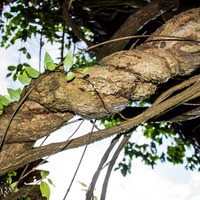It’s finally happening: After decades of prohibition, research on the therapeutic potential of entheogenic medicine is back above ground, and a revolution in psychedelic psychotherapy is underway. Documentaries like Netflix’s How to Change Your Mind are prepping the public for this sea change, companies like Mindbloom, TripSitter and Peak are openly advertising psychedelic therapy services on social media and facilities like Fluence and the Multidisciplinary Association for Psychedelic Studies (MAPS) are busily training psychedelic facilitators in the therapeutic use of psychedelic medicines such as psilocybin, ketamine and 5-MeO-DMT.
One such training center, the Berkeley Center for the Science of Psychedelics (BCSP), is developing a curriculum that it hopes will be the gold standard for training psychedelic therapists and guides. BCSP’s first training program launched in September 2022. Most of the 24 trainees enrolled are psychotherapists, psychologists, social workers and religious and spiritual care professionals, such as chaplains and other clergy members.
“We prioritized the [applicants] with advanced degrees in these relevant fields and those that already had significant professional experience,” notes Tina Trujillo, the program’s faculty director and principal investigator.
Spanning nine months, BCSP’s curriculum includes 135 hours of in-person instruction. Trainees will be versed in perspectives from medicine, psychology, psychiatry, social welfare and religious studies, as well as teachings in entheogenic traditions. They will spend an additional 40 hours observing live psychedelic sessions or directly interacting with participants in altered states of consciousness. Medically eligible trainees will also have the opportunity to volunteer as test subjects in an FDA-approved psilocybin study.
The Problem of Abuse
The reemergence of legal psychedelic therapy is, of course, exciting stuff, not just for psychedelic enthusiasts, but also for facilitators who are open-minded enough to take these medicines seriously as doorways to unexplored corridors of the psyche. At the same time, it raises some serious concerns. Not the least of these is the risk of sexual abuse and other potentially traumatizing behaviors on the part of therapists.
“There's this misconception that psychedelics magically fix people,” notes Juliana Mulligan, the psychedelic program coordinator for the New York-based Center for Optimal Living (CFOL), which offers training and education programs for psychedelic facilitators, as well as guidance in psychedelic integration from psychotherapists. “Actually, they can make certain behaviors worse. I've seen them make narcissistic tendencies and also personality disorder traits worse.”
Mulligan currently advocates for a group of women who claim to have been assaulted by a prominent figure in psychedelic medicine. “This community is the perfect storm for a sociopath or a narcissist, because it's unregulated and unmonitored, for the most part,” she says. “You can suddenly gain a lot of power and start making money, and no one’s watching you. It's a recipe for disaster.”
Mulligan, who worked with the Fireside Project to create a red flag guide for assessing psychedelic facilitators, adds, “There's a lot of psychedelic therapist training programs popping up right now, and some of these programs just get a lot of big names and throw them on the bill. That's how people think it's legitimate, but it's not necessarily true.”
She further warns against putting our blind trust in indigenous practitioners and putting psychedelic facilitators on pedestals. “I think people really need to do their research and talk to others in the community about experiences that they've had with the people teaching on the course,” she offers.
Mulligan feels there’s a need for more discourse about the dark side of the psychedelic community. She encourages people to develop the ability to confront others and to “get away from this love-and-light, everything’s-good, let's-just-focus-on-the-positive [mentality], which is, unfortunately, the approach of many people in the community. We also need an independent council where you can file complaints and which will do mediation for you with the [accused abuser].”
Setting Boundaries
As Tina Trujillo points out, the potential for abuse is hardly limited to the world of psychedelic therapy. It exists in any space where power dynamics are present.
“We see these same egregious violations that take place in academia; we have them happening in traditional talk therapy spaces; we have them happening in non-therapeutic spaces,” she observes. “This isn't simply a problem with the training, but it's certainly a responsibility of the training field, just like it is the responsibility of the researchers in this field to also uphold the highest ethical principles in their work.”
In choosing participants for its first certification program, BCSP screened out applicants who were still in training and/or were not formally affiliated with any particular organization. “In fields with licensing requirements, providers who remain unlicensed, though they may do good work, unfortunately don't have ethical guidelines or disciplinary bodies to ensure that patients and clients are being protected,” Trujillo says. “That's very important in fields like psychedelic care, which is inherently lacking in guidelines and criteria. Our hope is that programs like the BCSP will begin to provide some of those guidelines and the criteria for what makes for safe and effective facilitator training.”
BCSP’s training program devotes roughly 20 hours of instructional time to ethical principles and practices specific to psychedelic facilitators. “This part of the curriculum focuses on power dynamics, emotional and sexual boundaries between the facilitator and the client, understanding informed consent, the appropriate use of touch and staying within one’s scope of practice,” Trujillo explains. She adds that Kylea Taylor, a specialist in the field of ethics during altered states of consciousness, will be consulting and overseeing this part of the curriculum.
On the Bright Side …
While the danger of predation in psychedelic therapy is very real, so is the healing value of entheogenic medicine. Juliana Mulligan bears witness to this: As a self-described “formerly incarcerated survivor of opioid dependency,” she credits psychedelic therapy with ending her substance dependence.
“It completely changed my life,” she notes. “After seven years going through traditional rehab,12-step programs and medication-assisted treatment, none of which were helpful to me, ibogaine treatment is what finally did it.”
Along with promoting wellness on an individual basis, the coming psychedelic therapy boom may help facilitate a collective healing. If it spurs the culture at large to embrace the use of entheogenic medicines, this could go a long way in mending our broken relationship with nature and with one another.
As Trujillo notes, many of the mental health issues we face may be tied to that very issue. “Our program director, Chaplain Moana Meadow, has asked repeatedly whether some of the ailments that people seeking mental health care for—depression, loneliness, anxiety—are caused or exaggerated by our alienation from traditional ways of living, which historically have included communal and collective values and practices,” she says. “Perhaps if we can rekindle a relationship with these traditional medicines and their associated practices, we won't have so much suffering.”
Damon Orion is a writer, musician, artist and teacher based in Santa Cruz, CA. He has written for Revolver, Guitar World, Spirituality & Health, Classic Rock, High Times and other publications. Read more of his work here.
Read more: Rescheduling Psilocybin: A Beginner’s Guide
Read more: New Possibilities in the Science of Psychedelics
Read more: How to (Easily) Support Sacred Plant Medicine
Read more: Houses of the Holy
Read more: Keeping Psychedelics Sacred




